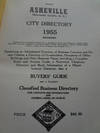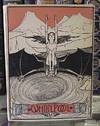
Utopia: Written in Latin by Sir Thomas More, Chancellor of England: Translated into English.
by MORE, Sir Thomas; [BURNET, Gilbert (translator)]
- Used
- first
- Condition
- See description
- Seller
-
London, London, United Kingdom
Payment Methods Accepted
About This Item
London, Printed for Richard Chiswell at the Rose and Crown in St Paul's Church-Yard, 1684. . First edition of the Burnet translation; small 8vo (18.5 x 12 cm); old MS price in pen to front free endpaper recto, woodcut headpieces; contemporary mottled calf ruled in blind, expertly rebacked to style, contrasting red morocco title-piece to spine, internally clean, very good; [24], 206, [2]pp.
The first edition of this translation by Gilbert Burnet of Thomas More's most important contribution to political philosophy, Utopia. An enigmatic work which continues to defy simple interpretation.
As Burnet (1643-1715) noted in his preface, 'I do not think... More himself went in heartily to that which is the chief Basis of his Utopia, the taking away of all Property, and the levelling of the World; but that he only intended to set many Notions in his Reader's way; and that he might not seem too much in earnest, he went so far out of all Roads to do it the less suspected'.
The tale begins when More encounters the fictional character Raphael Hythloday, a traveller who has just returned from voyages with Amerigo Vespucci. Hythloday tells More of a distant island called Utopia, where all property is held in common and gold and silver are used not as currency but as the material for making shackles and chamber pots. However, all is not as it seems, and the paradoxes in the names of Hythloday ('the nonsense speaker') and Utopia ('nowhere') reveal a more complex story.
Burnet's translation was completed in 1684 during in a low period of his life when he was out of royal favour. He found in More an unlikely ally; a fellow victim of political circumstance, who was 'one of the greatest Men that this Island has produced' (Preface).
'This translation, though not so frequently reprinted... is, in some respects, much superior, and certainly presents a more readable text' (Pforzheimer).
ESTC R7176; Wing M2691; Gibson 30; Sabin 50546; Pforzheimer 742; cf.PMM 47.
The first edition of this translation by Gilbert Burnet of Thomas More's most important contribution to political philosophy, Utopia. An enigmatic work which continues to defy simple interpretation.
As Burnet (1643-1715) noted in his preface, 'I do not think... More himself went in heartily to that which is the chief Basis of his Utopia, the taking away of all Property, and the levelling of the World; but that he only intended to set many Notions in his Reader's way; and that he might not seem too much in earnest, he went so far out of all Roads to do it the less suspected'.
The tale begins when More encounters the fictional character Raphael Hythloday, a traveller who has just returned from voyages with Amerigo Vespucci. Hythloday tells More of a distant island called Utopia, where all property is held in common and gold and silver are used not as currency but as the material for making shackles and chamber pots. However, all is not as it seems, and the paradoxes in the names of Hythloday ('the nonsense speaker') and Utopia ('nowhere') reveal a more complex story.
Burnet's translation was completed in 1684 during in a low period of his life when he was out of royal favour. He found in More an unlikely ally; a fellow victim of political circumstance, who was 'one of the greatest Men that this Island has produced' (Preface).
'This translation, though not so frequently reprinted... is, in some respects, much superior, and certainly presents a more readable text' (Pforzheimer).
ESTC R7176; Wing M2691; Gibson 30; Sabin 50546; Pforzheimer 742; cf.PMM 47.
Synopsis
Sir Thomas More, son of Sir John More, a justice of the King's Bench, was born in 1478, in Milk Street, in the city of London. After his earlier education at St. Anthony's School, in Threadneedle Street, he was placed, as a boy, in the household of Cardinal John Morton, Archbishop of Canterbury and Lord Chancellor. It was not unusual for persons of wealth or influence and sons of good families to be so established together in a relation of patron and client.
Reviews
On Apr 2 2016, a reader said:
Utopia was a beautiful concept of a life that revolved around peace and a society without violence. It would be a type of redirection in the way, we bring up our young from infancy. More who at one time was King Henry VIII's very close friend, fell from his grace by not swearing the vow that recognized Henry as the Head of the Church of England (which consequently excommunicated England from Rome) and also did not agree with the divorce/annulment from Catherine of Aragon so he could marry Anne Boleyn & name her queen (all this was included in the vow). He explained to Henry that he'd always love him as a friend, and never speak against him publicly, but as a Catholic, even if he said the words but kept the truth in his heart it would still be a lie. Out of pride and anger that Henry could not bend him to his will he finally had More beheaded. This book was a fantasy world to Henry, one he referred to as a joke. He believed in making a spectacle of wrong doers while Thomas had a more peaceful idea. There are many who still feel a Utopian (which means paradise) society could be had including myself. It would take hundreds of years more work now though than it would have then. And even if we got close, it would never be completely Utopian, human nature wouldn't allow it. But enjoying it 75% of the time would truly be a wonderful world.
(Log in or Create an Account first!)
Details
- Bookseller
- Shapero Rare Books
(GB)
- Bookseller's Inventory #
- 111398
- Title
- Utopia: Written in Latin by Sir Thomas More, Chancellor of England: Translated into English.
- Author
- MORE, Sir Thomas; [BURNET, Gilbert (translator)]
- Book Condition
- Used
- Place of Publication
- London, Printed for Richard Chiswell at the Rose and Crown in St Paul's Church-Yard, 1684.
Terms of Sale
Shapero Rare Books
30 day return guarantee, with full refund including original shipping costs for up to 30 days after delivery if an item arrives misdescribed or damaged.
About the Seller
Shapero Rare Books
Biblio member since 2020
London, London
About Shapero Rare Books
Specialising in rare books on Travel & Voyages, Natural History, Literature (including modern first editions), Children's Books, Guide Books, Judaica & Hebraica, titles of Russian interest, and Islamica.
Glossary
Some terminology that may be used in this description includes:
- Calf
- Calf or calf hide is a common form of leather binding. Calf binding is naturally a light brown but there are ways to treat the...
- Morocco
- Morocco is a style of leather book binding that is usually made with goatskin, as it is durable and easy to dye. (see also...
- Recto
- The page on the right side of a book, with the term Verso used to describe the page on the left side.
- Spine
- The outer portion of a book which covers the actual binding. The spine usually faces outward when a book is placed on a shelf....
- First Edition
- In book collecting, the first edition is the earliest published form of a book. A book may have more than one first edition in...
- Rebacked
- having had the material covering the spine replaced. ...


